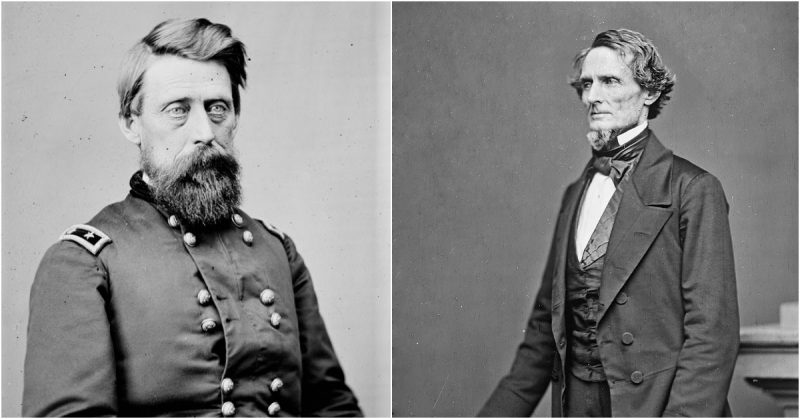Davis appeared a short while later with a pistol and shot General Nelson in the chest. Nelson died half an hour later.
One Union general in the American Civil War, Jefferson Davis, obviously shared a name with the Confederate president. This circumstance didn’t cause as much confusion as might be expected—with one notable exception.
During the Battle of Chickamauga in 1863, as dusk descended upon Horseshoe Ridge, soldiers of the 21st Ohio noticed a bevy of men approaching their position. Their first instinct was to assume that they formed a part of much-anticipated Union reinforcements. Still, a few of the more cautious types feared they were a force of Confederates, looking to overrun the ridge.
As the unidentified troops moved closer like wraiths in the twilight, one Union soldier hailed, “What troops are you?” The collective response was “Jeff Davis’ troops.”
The Ohio soldiers let out a sigh of relief and relaxed, confident that the oncoming men referred to their Union general. A short while later, they found themselves staring down the muzzles and bayonets of the 7th Florida. The Ohioans promptly surrendered.
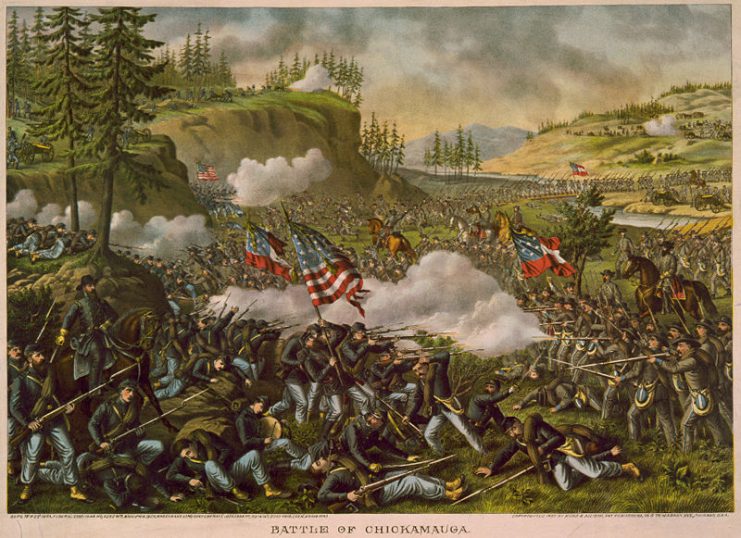
The Battle of Chickamauga resulted in the second highest number of casualties after Gettysburg. Ultimately, it was a Confederate victory, albeit a costly one with 18,450 fatalities on their side. The name mix-up that portended the outcome was only a minor sideshow in the grander scheme of things.
https://youtu.be/mYpNz7bvB1g
The name blunder was really a stroke of luck. The Confederate soldiers could just as well have identified themselves using another general’s name, like Braxton Bragg, since he was the overall commander of the Confederate army facing the Union at Chickamauga. Or they might have said the name of the tenacious Confederate General James Longstreet, who had just arrived with reinforcements.
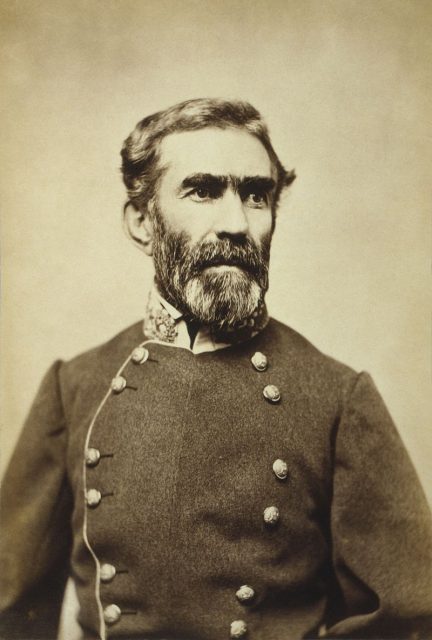
The two aforementioned officers would have made more sense because President Jefferson Davis never commanded an army on the field during the American Civil War. Yet, it goes to show how the men revered the politician and his dream of a separate nation.
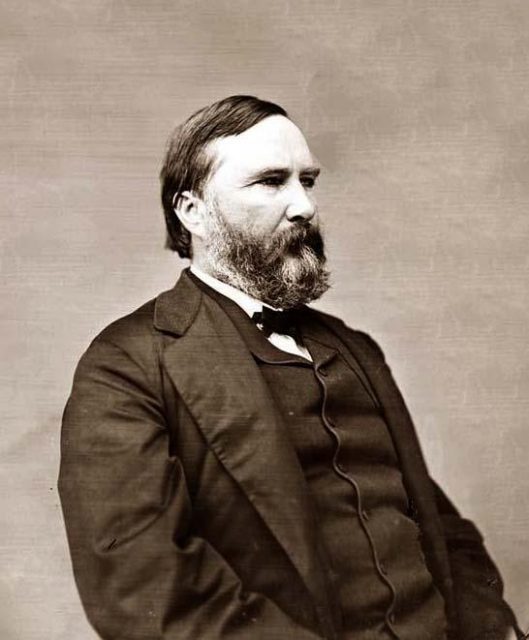
But who were these two men who shared the same name?
One was called Jefferson Finis Davis and he was the President of the Confederate States of America. The other was Jefferson Columbus Davis, a commander in the Union Army.
The two Davises had another thing in common apart from their shared first and last names. Both of them had their origins in the state of Kentucky. The Confederate president was born there, and the Union general’s parents were originally from there before moving to Indiana.
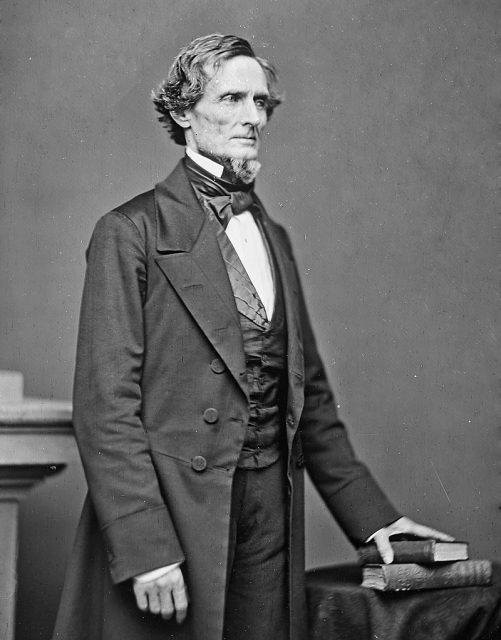
Moreover, both men had military ties and might have even met during the American-Mexican War of 1846-1848. The future Union general served with distinction, which earned him high prestige. Jefferson Finis Davis, on the other hand, served as a colonel in a voluntary regiment.
However, that is where the comparisons end. Jefferson Finis Davis was a Southerner and a wealthy slave owner. He was also a twice-married family man who had six children with his second wife, Varina Howell.
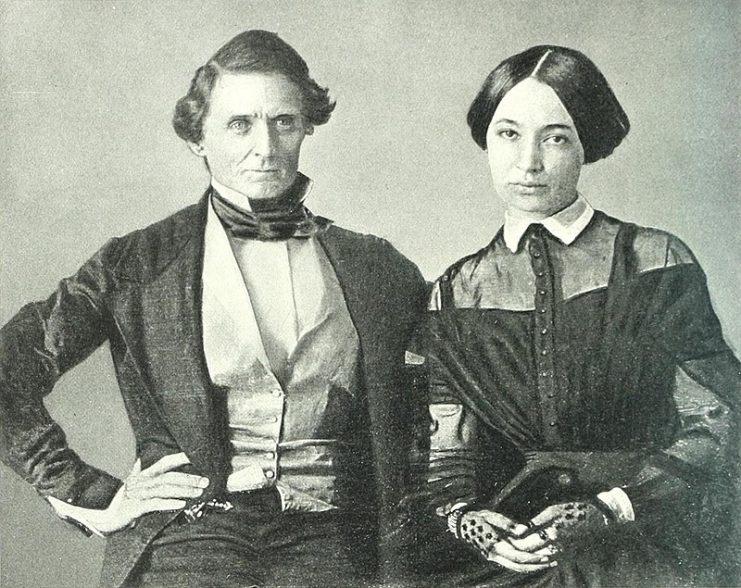
After serving bravely at the Battle of Buena Vista where he was shot in the foot, he was offered a brigadier general’s commission by President Polk, which he declined. Instead, he entered politics and became a senator.
Under President Franklin Pierce he became the US Secretary of War. During this tenure, he made some significant changes to the US military, raising the servicemen’s pay scale and enlarging the army by four regiments.
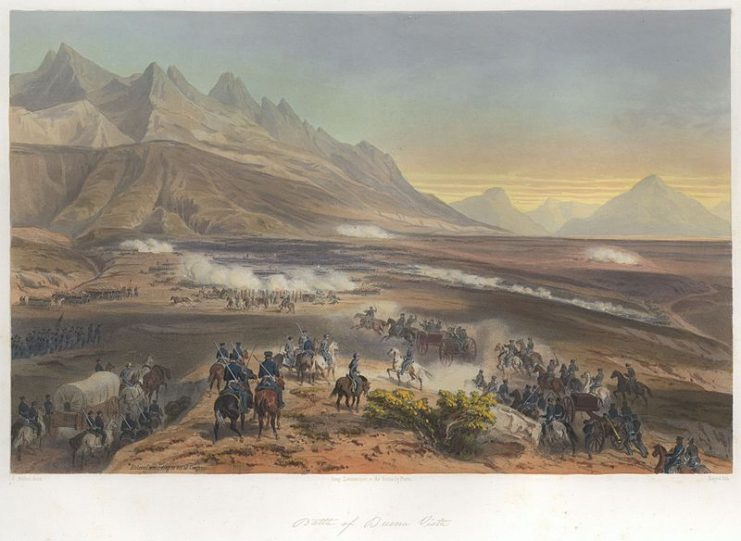
With the election of Abraham Lincoln, the secessionist movement in the South gained traction. And although Davis believed that each state had the right to determine its own fate, he was against seceding from the Union.
When South Carolina on December 20, 1860, and then Mississippi on January 9, 1861, adopted ordinances of secession, he called Mississippi’s secession “the saddest day of my life.” He delivered his farewell address to the United States Congress, and a few months later, the Civil War started.
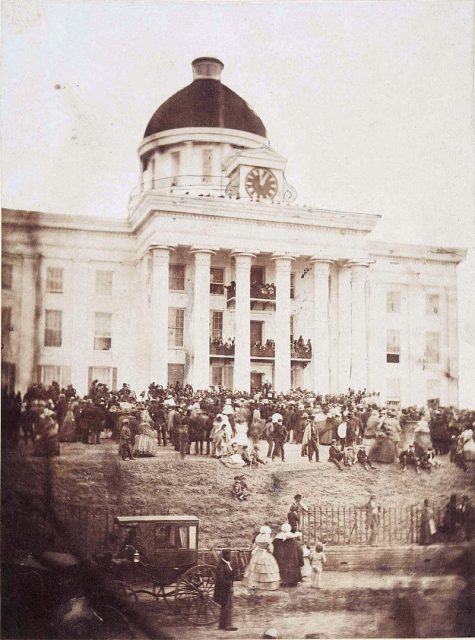
Jefferson Columbus Davis witnessed the start of hostilities at Fort Sumter–he was a captain at the time. He quickly rose through the ranks, succeeding Brigadier General Ulysses Grant as commander of forces in Northwest Missouri. However, he would never rise above the rank of brigadier general because he killed his superior officer during a disagreement concerning a slight to his character.
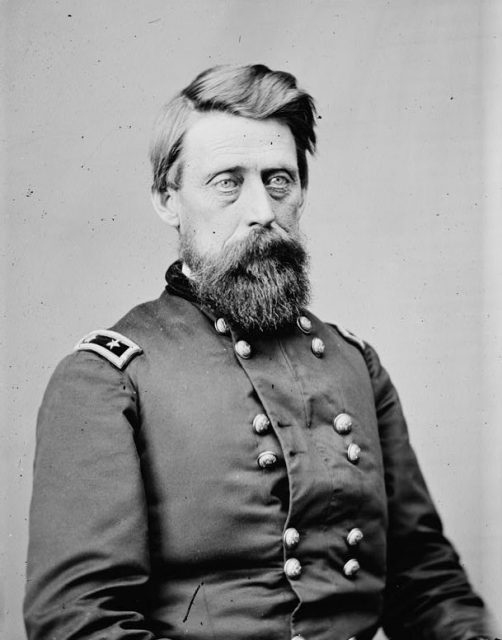
Davis entered into an argument with a man nicknamed the “Bull” because of his incredible height and bulk. General Nelson, or the Bull, was unimpressed by Davis’s account of troop dispositions at Louisville, becoming enraged, and ultimately expelled Davis from his position.
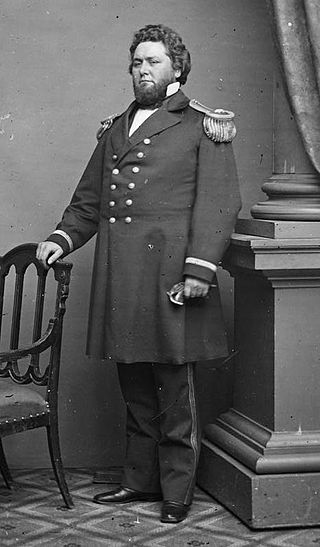
“Go away you damned puppy, I don’t want anything to do with you!” snarled the Bull when Davis approached him a week later with a demand for an apology at Galt House, which Nelson used as his command post.
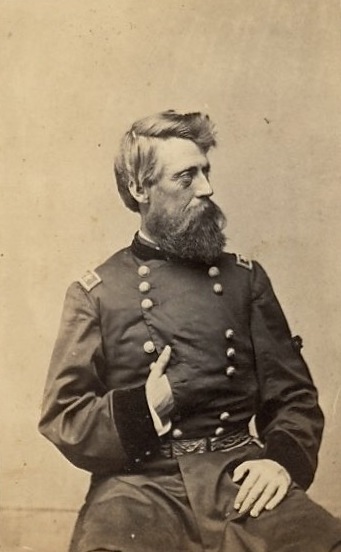
Davis tried to suppress his anger at this insult and even managed to return to his room without further incident. However, the respite was brief. He appeared a short while later with a pistol and shot General Nelson in the chest. Nelson died half an hour later.
Davis escaped conviction by the skin of his teeth because of the need for experienced officers during the war. He ended up serving in the army for the rest of his life.
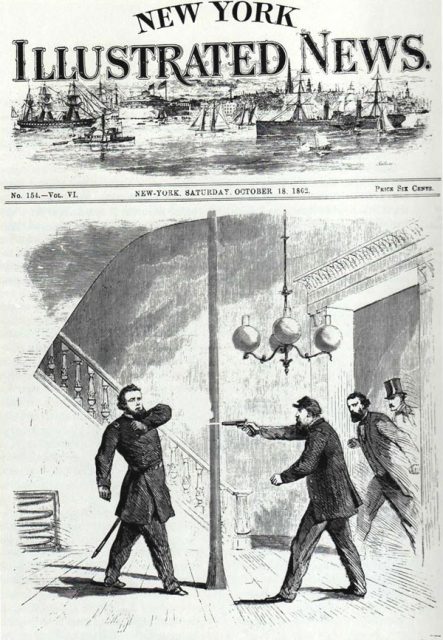
Read another story from us: Heroes of America: The Civil War Within the Confederacy
The other Jefferson Davis was not as fortunate. He was accused of treason for his role during the American Civil War and spent two years in prison.
Upon his release, he wrote the book The Rise and Fall of the Confederate Government and focused his attention on reconciliation by telling Southerners to be loyal to the Union. The postbellum South considered him a hero and many statues in the region attest to his celebrity.
